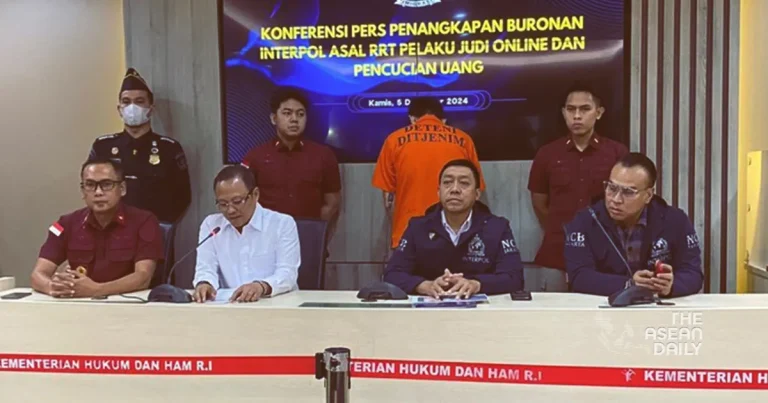11-12-2024 (JAKARTA) Legal experts have shed new light on Singapore’s stance regarding Interpol Red Notice arrests, emphasising that the city-state lacks both the obligation and legal authority to detain individuals listed by Interpol who are wanted by foreign jurisdictions.
The matter has gained attention following the recent arrest of Chinese national Yan Zhenxing in Indonesia’s Batam island, despite his permanent residency status in Singapore. Yan, who is in his early 40s, was apprehended by Indonesian authorities at a ferry terminal in Batam, situated 23km southeast of Singapore, during a holiday visit.
Chinese Interpol authorities are seeking Yan for alleged involvement in online gambling activities and suspected links to a money laundering criminal syndicate. His arrest has prompted questions about his ability to reside in Singapore whilst being subject to an Interpol Red Notice.
Shashi Nathan, joint managing partner at Withers KhattarWong with expertise in extradition cases, clarified that Red Notices merely serve as information-sharing mechanisms. “Red Notices are just information and data to be shared. In itself, it does not prove any offence is committed. All it says is somebody is looking for you,” Nathan explained.
Singapore authorities have confirmed their awareness of the Red Notice against Yan but emphasised their legal limitations. “Under Singapore laws, the Interpol Red Notice does not confer the police with the powers to arrest a fugitive wanted by a foreign jurisdiction,” stated joint comments from Singapore police and Immigration and Checkpoints Authority.
Chinese authorities allege Yan’s involvement in laundering over 130 million yuan (US$17.9 million) through an illegal gambling operation, according to investigations in Inner Mongolia. Singapore officials have confirmed that Yan is not linked to the recent S$3 billion (US$2.2 billion) money laundering case that rocked the nation earlier this year.
Criminal defence specialist Amarjit Singh Sidhu emphasised that Interpol membership does not automatically require arrest action. “The notice does not confer a country with the powers to arrest a fugitive wanted by a foreign jurisdiction,” he stated.
Nathan further elaborated on arrest procedures, noting two primary methods: formal extradition orders or bilateral agreements between nations. He stressed that regardless of Red Notice status, arrests must be supported by sufficient evidence and proper legal frameworks.
This case follows several recent incidents involving Chinese nationals in Singapore, including the May arrest of alleged botnet operator Wang Yunhe, who reportedly accumulated US$99 million through criminal cyber activities.
The Singapore authorities noted that when Yan received his permanent residency status, no Red Notice existed against him, as it was only issued in July this year. They also confirmed receiving no assistance requests from Chinese authorities regarding his case




